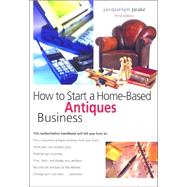This series provides the tools to help launch a successful home business and keep it running in today's competitive environment. Like having a personal business advisor, each title in this series provides insider information from professionals who have done it themselves, including:
-- Essential information on start-up costs, self-evaluation, and zoning regulations
-- Advice on how to attract first-time customers, maintain a loyal client base, and price services competitively and profitably
-- Easy-to-use worksheets and questionnaires to help entrepreneurs focus on success, plus sample business forms
-- Listings of contacts, organizations, and phone numbers of people in the trade
-- Internet sites as sources of information, marketing and selling, and making contacts








